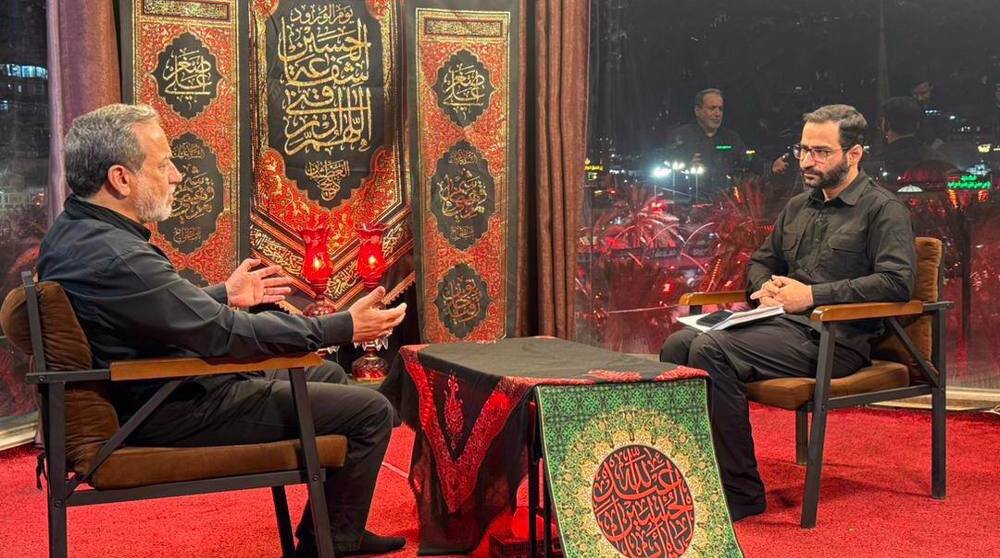Iran coordinating with China, Russia to block ‘snapback’ sanctions: Araghchi

TEHRAN – Iranian Foreign Minister Abbas Araghchi says Tehran is working in close coordination with China and Russia to prevent the reactivation of UN sanctions through the so-called “snapback” mechanism, which European powers have recently threatened to invoke.
“We are working with China and Russia to stop it,” Araghchi told national television late Thursday. “If this does not work and they apply it, we have tools to respond. We will announce them in due course.”
The snapback provision—embedded in UN Security Council Resolution 2231, which endorsed the 2015 nuclear deal (JCPOA)—allows for the automatic restoration of sanctions lifted under the agreement.
“When the United States unilaterally left the JCPOA in 2018 and reimposed sanctions, we began reducing our nuclear commitments in phases until we returned to pre-agreement conditions,” Araghchi said. He noted that Iran’s nuclear infrastructure was preserved during the JCPOA years, enabling enrichment to 20% and later 60% “in less than 24 hours” once the decision was made.
Araghchi stressed that the legal authority of Britain, France, and Germany to trigger snapback is “highly questionable” under international law, arguing that their recent call for “zero enrichment” violates the JCPOA’s terms, which permit enrichment up to 3.67%. “By rejecting the deal’s framework, they forfeit the right to use its provisions,” he said.
Tehran has laid out its position in a detailed letter to the UN Security Council, asserting that the three European states are no longer legitimate JCPOA participants. This position is backed by China and Russia, both of which have veto power at the Security Council and have repeatedly opposed Western use of the snapback clause.
“We have held repeated technical and legal discussions with China and Russia over the years,” Araghchi said. “Their support is essential in this legal and political battle.”
Resolution 2231’s snapback clause will automatically expire on October 18, 2025. “Europeans have until the end of October,” Araghchi said. “After that, the mechanism disappears.”
Economically, Araghchi said Iran has little to no fears over the sanctions’ potential impact, noting existing unilateral US measures are “much broader” than what snapback would impose. “UN sanctions do not include oil or banking embargoes; they mainly target specific individuals and companies,” he said. “The real damage would be political—reimposing the arms embargo and classifying Iran as a ‘threat to international peace and security’ under Chapter VII.”
‘IAEA cooperation must be redefined after attacks on nuclear facilities’
The foreign minister said Iran’s cooperation with the International Atomic Energy Agency (IAEA) must be based on a new framework after recent attacks on its nuclear facilities. “The IAEA must first explain what the inspection protocol is for a bombed nuclear site. There is no precedent,” he said, citing hazards from unexploded ordnance and radiation.
Under a parliamentary law, any future inspections must be approved by the Supreme National Security Council. Araghchi confirmed that preliminary talks with an IAEA delegation have taken place, with an entire day spent on discussions involving the Foreign Ministry and the Atomic Energy Organization of Iran. “Initial ideas were exchanged and passed to the IAEA for review. It’s not a bad start, but reaching an agreement will take time,” he said.
Arbaeen reflections: unity and resistance after 12-day war
Araghchi’s comments also touched on national resilience following the June 13 US-Israeli aggression against Iran, which targeted military and nuclear sites and killed senior officials, nuclear scientists, and civilians. In response, Iran launched precision missile strikes on Israeli military and industrial infrastructure and on a US base in Qatar. Twelve days later, the Israeli regime accepted a unilateral ceasefire proposed by Washington.
Speaking from Karbala during the annual Arbaeen pilgrimage—one of the largest peaceful gatherings in the world—Araghchi said the steadfastness of the Iranian people “infuriated our enemies.” He dismissed Israeli Prime Minister Benjamin Netanyahu’s claim about solving Iran’s water problems by turning sewage into drinking water as “laughable,” pointing to the severe water crisis in Gaza.
He said Iraqis at Arbaeen expressed pride in Iran’s missile response, describing the procession as a “display of Shia strength” and noting that the ethos of Ashura had inspired Iran’s resistance during the war. “The martyrdom of a commander does not halt the movement—it strengthens it,” he said.
Addressing speculation about another war, Araghchi said he currently sees no signs of imminent conflict, though readiness remains essential. “Our enemies try to impose the psychological effects of war without fighting. We must be alert to such tactics,” he said.
“With nearly 40 years in international affairs, I do not believe war is close. But the Armed Forces must always be prepared—preparedness is the best deterrent.”
Leave a Comment